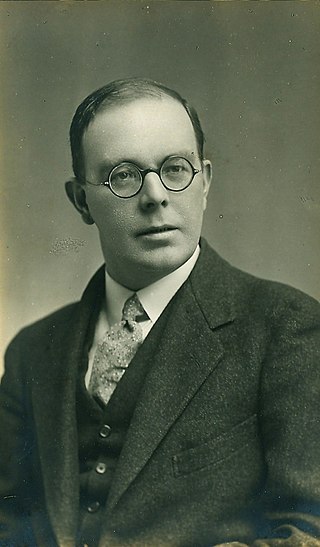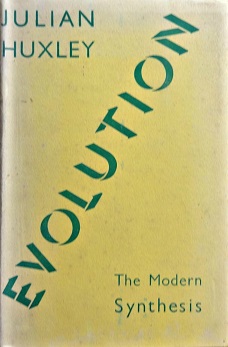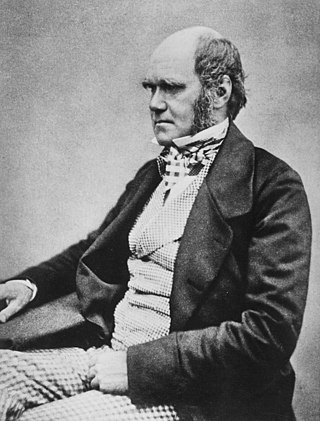This article needs additional citations for verification .(July 2020) |
Cyril Bibby (b. Liverpool, 1 May 1914 as Harold Cyril Bibby; d. Edinburgh 20 June 1987) was a biologist and educator. He was also one of the first sexologists.
This article needs additional citations for verification .(July 2020) |
Cyril Bibby (b. Liverpool, 1 May 1914 as Harold Cyril Bibby; d. Edinburgh 20 June 1987) was a biologist and educator. He was also one of the first sexologists.
Bibby was the third of eight children and lived in Aigburth, Liverpool. He was educated at Sudley Road School, Liverpool, Liverpool Collegiate School and Queens' College, Cambridge (BA 1935, MA 1939). He was active in the CU Socialist Society and the Union Society.
In 1936 he married Frances (Florence Mabel) Hirst (Girton 1932-1935, b.1914, d.1993); they had two sons and two daughters. Len Carney was a brother in law.
He was an early member of the Council of Christians and Jews: he prided himself on being the only such member who was "neither a Christian nor a Jew" (he was an atheist).
In 1958-59 he was the prospective Labour Party candidate in Barnet opposing Reginald Maudling (but resigned on moving to Hull in September 1959, just before the election was announced).
He is known for his work on education, T.H. Huxley, and limericks. Indeed, David Rubinstein has said "If Huxley was Darwin's bulldog, then Cyril Bibby was Huxley's bulldog".
Bibby gained an MSc at the University of Liverpool in 1940 for research on Europe in Quaternary times, and a PhD at the University of London in 1955 for a thesis on T.H. Huxley. He wrote books and articles on Huxley, and on human biology, especially in the fields of health and sex education, and later on limericks.
The Bibby papers are housed at Cambridge University Library.
Bibby, Cyril; Blythe, Max (1981). "Dr Cyril Bibby in interview with Dr Max Blythe". Oxford Brookes University. doi:10.24384/000030.{{cite journal}}: Cite journal requires |journal= (help)

Darwinism is a term used to describe a theory of biological evolution developed by the English naturalist Charles Darwin (1809–1882) and others. The theory states that all species of organisms arise and develop through the natural selection of small, inherited variations that increase the individual's ability to compete, survive, and reproduce. Also called Darwinian theory, it originally included the broad concepts of transmutation of species or of evolution which gained general scientific acceptance after Darwin published On the Origin of Species in 1859, including concepts which predated Darwin's theories. English biologist Thomas Henry Huxley coined the term Darwinism in April 1860.

Thomas Henry Huxley was an English biologist and anthropologist who specialized in comparative anatomy. He has become known as "Darwin's Bulldog" for his advocacy of Charles Darwin's theory of evolution.

Theodosius Grigorievich Dobzhansky was an American geneticist and evolutionary biologist. He was a central figure in the field of evolutionary biology for his work in shaping the modern synthesis and also popular for his support and promotion of theistic evolution as a practicing Christian. Born in the Russian Empire, Dobzhansky immigrated to the United States in 1927, aged 27.

Social Darwinism is the study and implementation of various pseudoscientific theories and societal practices that purport to apply biological concepts of natural selection and survival of the fittest to sociology, economics and politics. Social Darwinists believe that the strong should see their wealth and power increase, while the weak should see their wealth and power decrease. Social Darwinist definitions of the strong and the weak vary, and differ on the precise mechanisms that reward strength and punish weakness. Many such views stress competition between individuals in laissez-faire capitalism, while others, emphasizing struggle between national or racial groups, support eugenics, racism, imperialism and/or fascism.

Robert Mearns Yerkes was an American psychologist, ethologist, eugenicist and primatologist best known for his work in intelligence testing and in the field of comparative psychology.
Sir Ronald Aylmer Fisher was a British polymath who was active as a mathematician, statistician, biologist, eugenicist, geneticist, and academic. For his work in statistics, he has been described as "a genius who almost single-handedly created the foundations for modern statistical science" and "the single most important figure in 20th century statistics". In genetics, Fisher was the one to most comprehensively combine the ideas of Gregor Mendel and Charles Darwin, as his work used mathematics to combine Mendelian genetics and natural selection; this contributed to the revival of Darwinism in the early 20th-century revision of the theory of evolution known as the modern synthesis. For his contributions to biology, Richard Dawkins declared Fisher to be the greatest of Darwin's successors. He is also considered one of the founding fathers of Neo-Darwinism. According to statistician Jeffrey T. Leek, Fisher is the most influential scientist of all time based off the number of citations of his contributions.

Sir Julian Sorell Huxley was a British evolutionary biologist, eugenicist, and internationalist. He was a proponent of natural selection, and a leading figure in the mid-twentieth century modern synthesis. He was secretary of the Zoological Society of London (1935–1942), the first director of UNESCO, a founding member of the World Wildlife Fund, the president of the British Eugenics Society (1959–1962), and the first president of the British Humanist Association.

Leonard Huxley was an English schoolteacher, writer and editor.

Sir Cyril Lodowic Burt, FBA was an English educational psychologist and geneticist who also made contributions to statistics. He is known for his studies on the heritability of IQ.
The concept of race as a categorization of anatomically modern humans has an extensive history in Europe and the Americas. The contemporary word race itself is modern; historically it was used in the sense of "nation, ethnic group" during the 16th to 19th centuries. Race acquired its modern meaning in the field of physical anthropology through scientific racism starting in the 19th century. With the rise of modern genetics, the concept of distinct human races in a biological sense has become obsolete. In 2019, the American Association of Biological Anthropologists stated: "The belief in 'races' as natural aspects of human biology, and the structures of inequality (racism) that emerge from such beliefs, are among the most damaging elements in the human experience both today and in the past."

Sir Charles Galton Darwin was an English physicist who served as director of the National Physical Laboratory (NPL) during the Second World War. He was a son of the mathematician George Darwin and a grandson of Charles Darwin.
Cyril Dean Darlington was an English biologist, cytologist, geneticist, and eugenicist. He discovered the mechanics of chromosomal crossover, its role in inheritance, and thus its importance to evolution. He was the Sherardian Professor of Botany at the University of Oxford from 1953 to 1971.
John Randal Baker FRS was an English biologist, zoologist, and microscopist, and a professor at the University of Oxford, where he was Emeritus Reader in Cytology. He received his D.Phil. at the University of Oxford in 1927.
The Adelphi Genetics Forum is a non-profit learned society based in the United Kingdom. Its aims are "to promote the public understanding of human heredity and to facilitate informed debate about the ethical issues raised by advances in reproductive technology."
A Civic Biology: Presented in Problems was a biology textbook written by George William Hunter, published in 1914. It is the book which the state of Tennessee required high school teachers to use in 1925 and is best known for its section about evolution that was ruled by a local court to be in violation of the state Butler Act. It was for teaching from this textbook that John T. Scopes was brought to trial in Dayton, Tennessee in the Scopes "Monkey" Trial. The views espoused in the book about evolution, race, and eugenics were common to American Progressives.

Sir Gavin Rylands de Beer was a British evolutionary embryologist, known for his work on heterochrony as recorded in his 1930 book Embryos and Ancestors. He was director of the Natural History Museum, London, president of the Linnean Society of London, and a winner of the Royal Society's Darwin Medal for his studies on evolution.

Evolution: The Modern Synthesis, a popularising 1942 book by Julian Huxley, set out his vision of the modern synthesis of evolutionary biology of the mid-20th century. It was enthusiastically reviewed in academic biology journals.

Charles Robert Darwin was an English naturalist, geologist, and biologist, widely known for his contributions to evolutionary biology. His proposition that all species of life have descended from a common ancestor is now generally accepted and considered a fundamental scientific concept. In a joint publication with Alfred Russel Wallace, he introduced his scientific theory that this branching pattern of evolution resulted from a process he called natural selection, in which the struggle for existence has a similar effect to the artificial selection involved in selective breeding. Darwin has been described as one of the most influential figures in human history and was honoured by burial in Westminster Abbey.
Eugenics manifesto was the name given to an article supporting eugenics, published in 1939 in the journal Nature, entitled Social Biology and Population Improvement.
Kingston upon Hull College of Education was founded in 1913 as the "Hull Municipal Training College". The college had numerous name changes until September 1976 when it merged with the Hull College of Higher Education, which ultimately formed part of the University of Lincoln. The stimulus for the formation of the college was in response to a shortage of certified teachers in the city's schools. The college-trained teachers and educationalists for the city and beyond followed an ethos which was primarily set by Cyril Bibby, principal between 1959 and 1977. The college's first principal was Helen Todd.